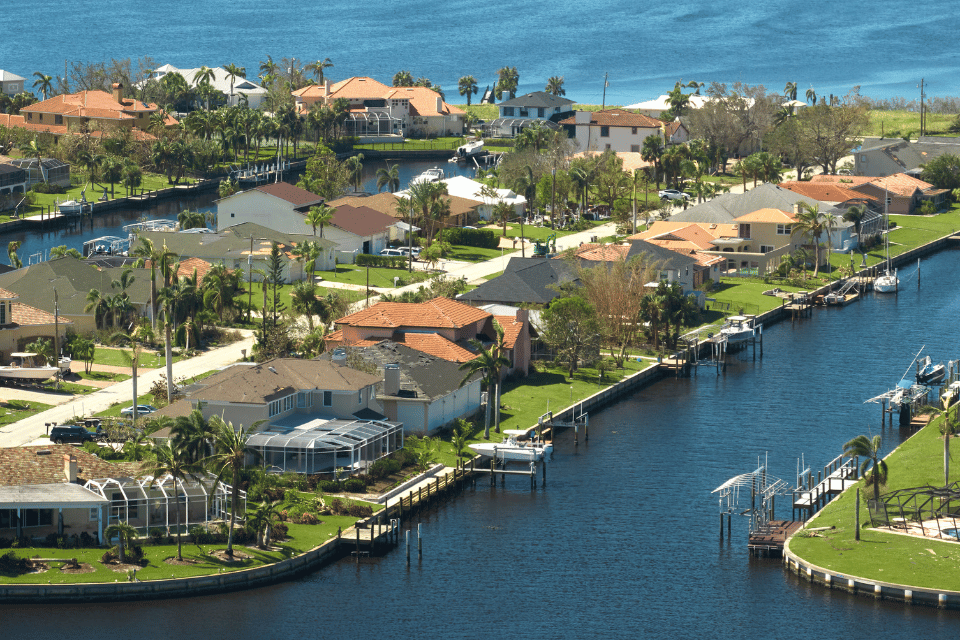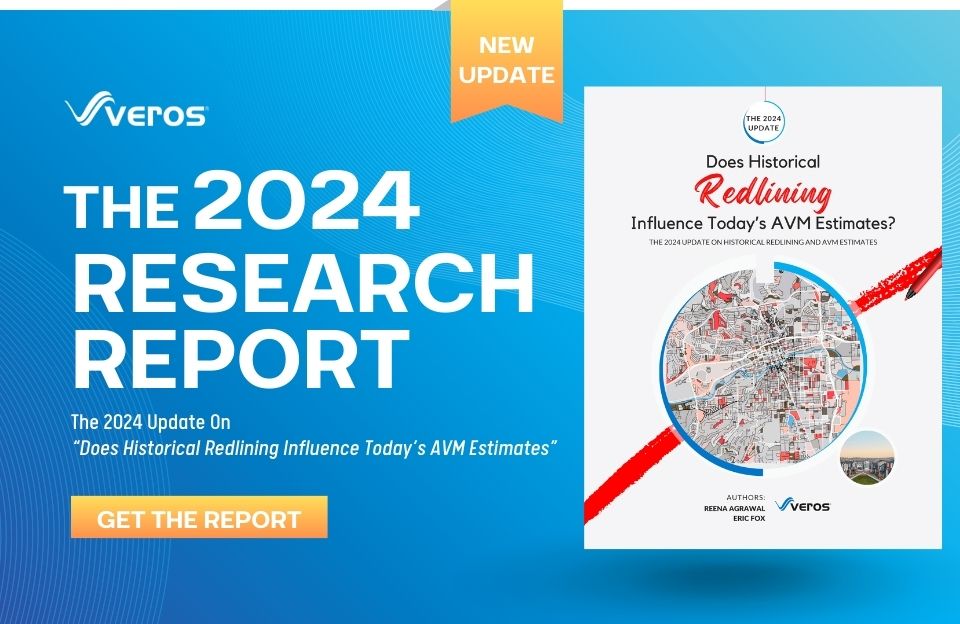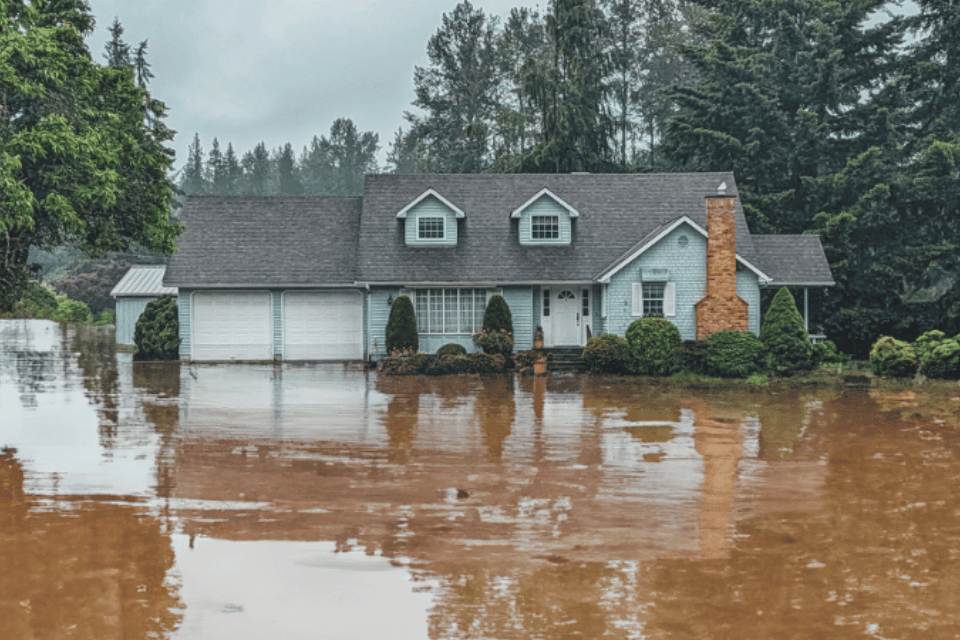Average yearly home insurance premiums in Florida surged to over $4,231 in 2022 from $2,165 in 2020, according to data from the Insurance Information Institute (Triple-I). Furthermore, they climbed by an additional 42% in 2023, solidifying Florida’s position as the state with the highest homeowner insurance premiums. Forecasts suggest double-digit increases for 2024.
One of the primary drivers behind the escalating premiums is the prevalence of fraud and legal exploitation. Consequently, insurers have raised premiums to offset legal expenses and mitigate other associated risks. According to Triple-I, Florida accounts for nearly 71 percent of the nation’s annual homeowners’ insurance lawsuits. Additionally, insurers are grappling with heightened payouts resulting from catastrophic events and escalating reinsurance costs. Hurricane Ian, for instance, incurred an estimated insured property loss of $54 billion (Triple-I), ranking it as the second-costliest hurricane in the U.S. In addition, Florida ranks sixth nationwide in terms of wildfire occurrences and ninth in terms of acres burned. Consequently, seven residential insurers domiciled in Florida have ceased operations since February 2022, while numerous others have either withdrawn entirely from the market or halted the underwriting of new policies due to untenable risk exposure. Floridians are experiencing not only a surge in insurance premiums but also encountering increased difficulty in securing coverage.
Soaring insurance premiums are being accompanied by rising HOA costs. In addition to the rising cost of insurance premiums and liability coverage, escalating prices of materials and labor have led to a corresponding rise in the maintenance and services costs utilized by HOAs. Adding to the financial strain was the enactment of a legislation mandating milestone structural inspections for condominium and cooperative association buildings taller than three stories. This legislation was enacted after the collapse of the Champlain Towers in Surfside, Florida, to prevent anything similar from happening again. The bill also imposes new requirements for reserve funds to cover future long-term maintenance costs and other provisions, further contributing to financial burdens. Another reason why HOA fees are going up is because buildings need to be improved. Some older condos might not have amenities like gyms, pools, or nice common areas. To make these buildings more appealing to buyers and keep up with newer buildings, HOAs may have to spend money on upgrades. But making these improvements costs money, so homeowners will probably have to pay more in HOA fees to cover the expenses.
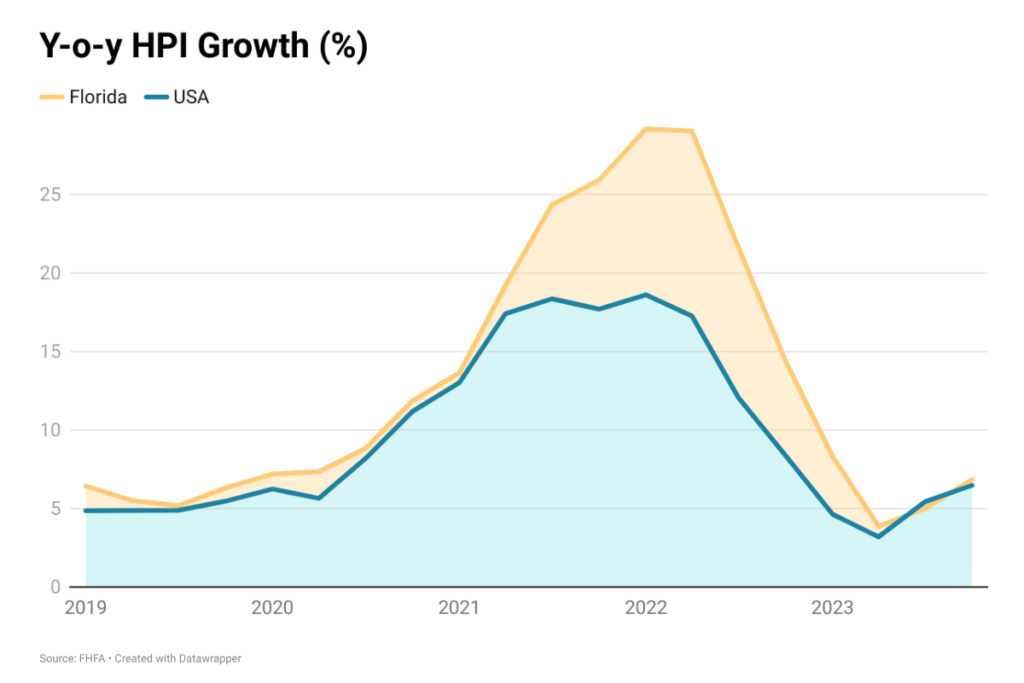
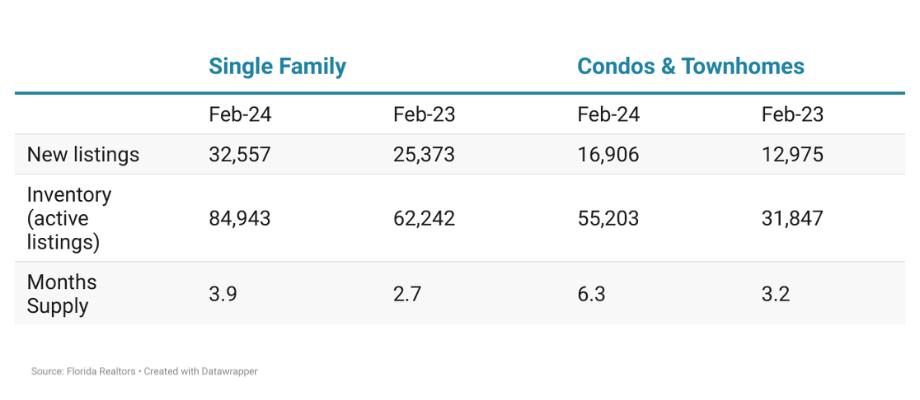
However, the full extent of how these rising costs will impact prices and overall market stability remains to be seen. Legislative or insurance industry changes could help alleviate the pressure on insurance premiums. Similarly, some HOAs might explore ways to streamline operations and control costs. Overall, high insurance and HOA fees are creating a challenging environment for the Florida housing market.

